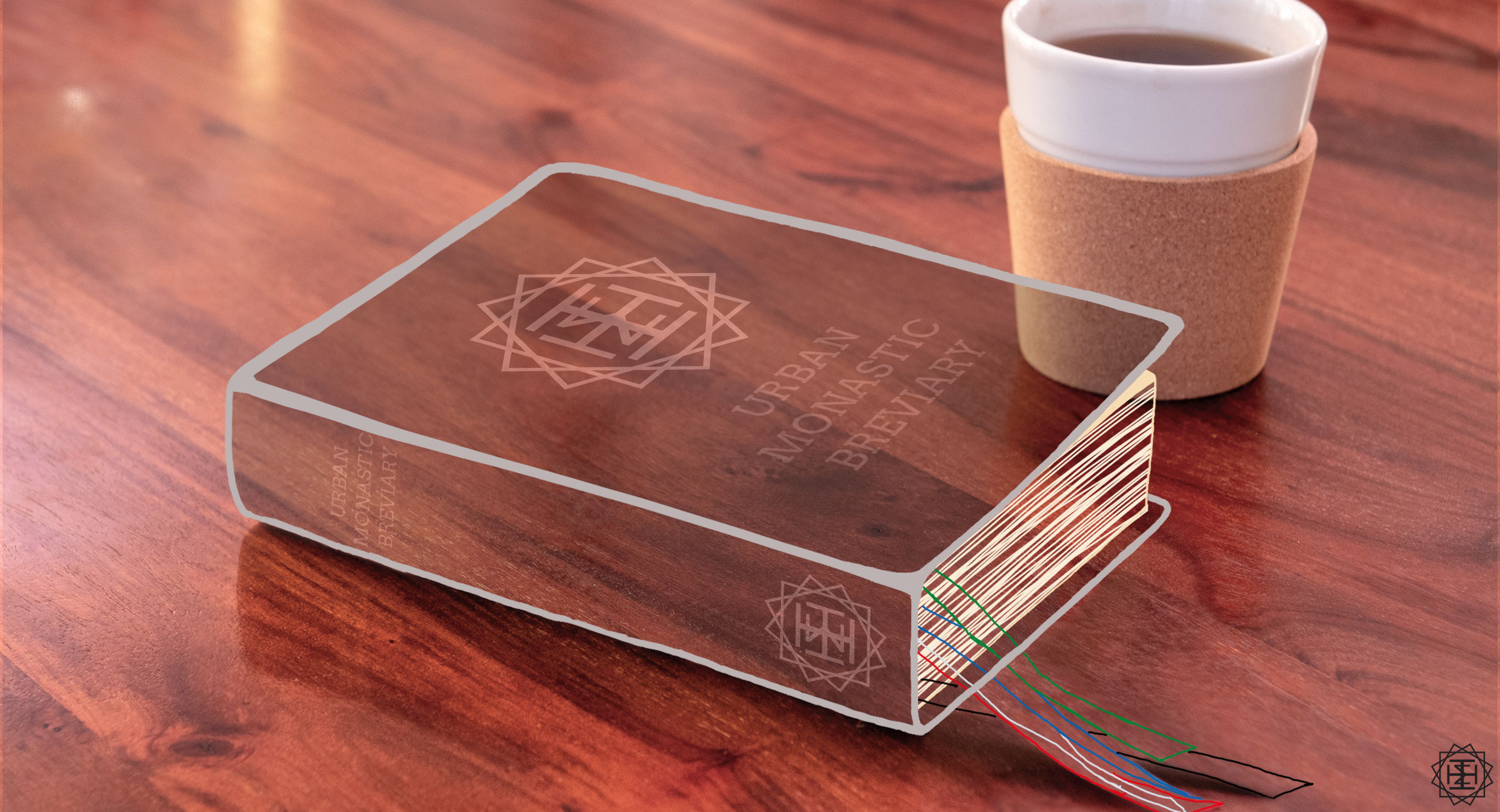Announcing the Urban Monastic Breviary
One of the most content rich parts of our practice of Urban Monasticism is praying the Divine Offices. All of the psalms, readings, canticles, antiphons, prayers, and more that go into this daily rhythm. To help those of us on this path we have begun the process of creating a breviary of our own.
There are a few distinctive characteristics that will be present in this Breviary. I hope that by sharing our vision for this work you can understand why we are undertaking it instead of just using existing works. First and foremost we need to make clear that it will never be a requirement to use our breviary. For individuals in traditions that have their own breviaries we encourage you to use them. We will – when meeting together – use our Breviary.
As we progress with both the breviary and the monastic platform we will update you with its progress. As of now we do not have a target end date for completion. This is an ambitious and large project. There are many aspects of it which are only starting to come into our understanding. We are excited to go on this journey.
Why we are making our breviary
Freedom to create Derivative works
For us to do some of the creative things we plan on doing we want to ensure that there are no licensing issues which would restrict us. To own our own texts will ensure that we do not need to concern ourselves with maintaining licenses as individuals desire to create works to help themselves, and others, be present with God and others. All rights of these translations will be the property of Urban Monastics. We have not yet landed on more open licenses for general public usage, but our intention is to have these available for any community they might be a blessing for.
Building for Ecumenical use
Our explicit goal is to be welcoming of Christians from all faith traditions. This does require us to adapt certain elements and texts. By creating our own breviary (though based heavily upon the “Thesaurus Liturgiae Horarum Monasticae” published in 1977 after the Second Vatican Council by the Vatican) we can attempt to bridge many of these differences and honor many of the distinctive elements of different traditions over the course of our liturgical year through our prayers together.
Purposed to be beautifully read aloud
To pray aloud is such a blessing. It makes it even more important for the texts we’re reading to be well written, and sound pleasing to the ears of our time. This will require commitment over the years to maintain and improve. There is not one correct way to translate these texts. We desire to do our best to form and structure every text to honor that they are sacred, and that they are for us to pray, read, and understand.
To create meditative, emotive, inclusive, & accessible texts
There is no greater love for us than Jesus who laid his life down for us. We purpose to capture the emotion of life that is present in the texts and seasons. Our translation guidelines have been published on our site, and they will result in a unique rendering of the holy scriptures, and texts for the breviary. Enabling each monastic to be present in the words they are praying is important. Special attention is being paid to adapt gendered language, to avoid exclusionary language, and use neutral group language. Every text needs to pay attention to reading level. Choosing more simple grammatical structures and word choices to further make the work available to more people.
Multiple Languages of the Breviary
As we get started the breviary will be translated into English and French. We hope in the future to offer additional versions based on interest and the abilities of our translation team. We are building out powerful tools to help translators do the work, and publish the finished products for you all.
Publish in multiple forms and media
It is our desire to make praying the office as accessible as possible. A big part of this is how we can deliver these prayers to those who want to pray with us. While we develop the breviary we will be publishing the offices online through our monastic platform. This will dynamically generate each office from the source texts for reading in a browsers or mobile app.
As we get more and more of the texts translated we will start building up a library of audio that people can pray along with. This is a way to help foster the togetherness joining in on the prayer of the church can offer.
When we feel comfortable with the state of the texts in each language we desire to publish printed texts of the breviary. There is great convenience and easy to pray these online. There is also something something sacred about having a book dedicated to prayer. We want to publish this book for Urban Monastics. Our intention is to do it near cost directly through us, but we will need to better understand the logistics and costs when the time comes.
Photo Credit
Paul Prins taken 6 December 2020 in Paris.


